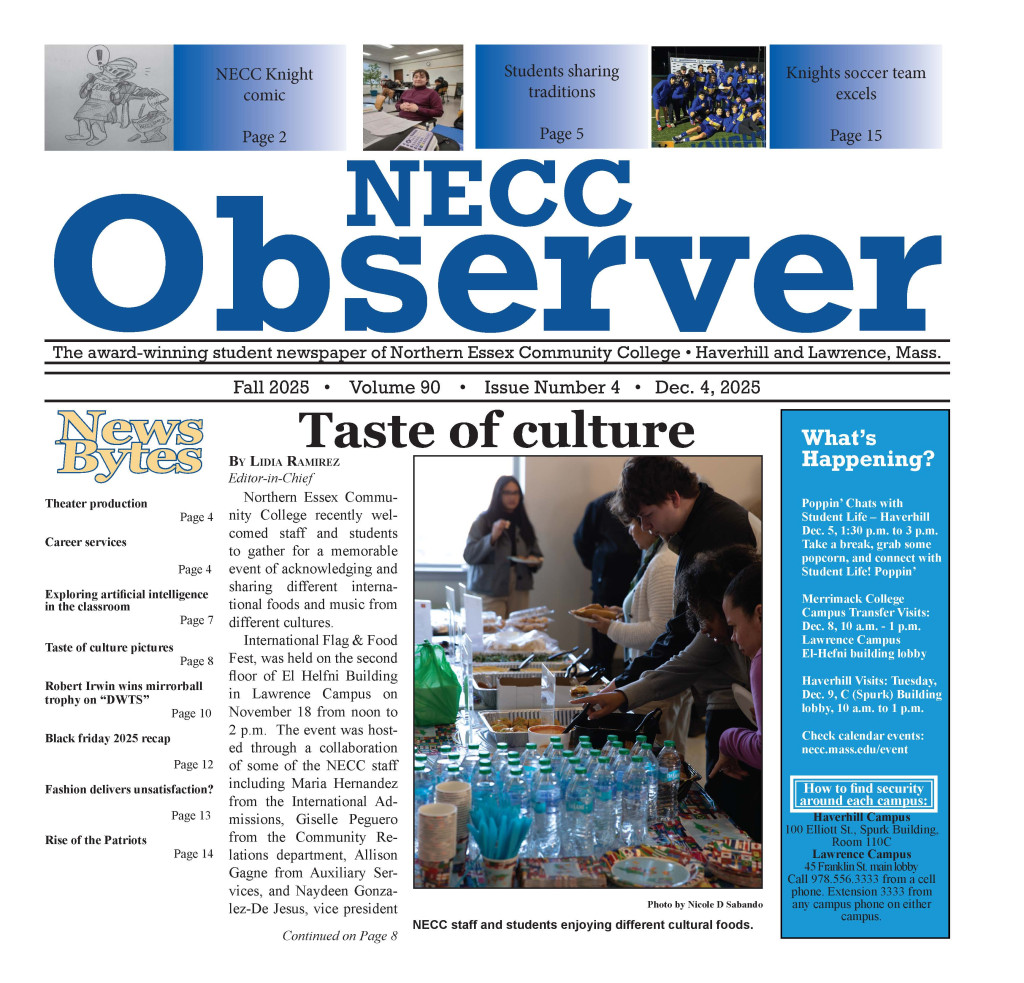On Friday, Nov. 21 the NECC Gay Straight Alliance held a trans awareness workshop.
Three students spoke to educate students, staff and faculty about the issues they face every day, and the proper ways to talk about it so no one gets hurt.
At the beginning of the workshop, Kelly Schwing, the president of the GSA, asked everyone to ponder a thought. They were asked to think about how many trans students they interact with every day?
The panel started off by reading a slide giving a description on what it means to be transgender.
The slide said, “transgender people are individuals who have a gender identity that does not match their sex they were assigned at birth. Typically people who are transgender have a self-image that varies from the body or gender role they were born into and wish to take steps to change that. Some people opt to identify as transgender as opposed to transsexual. The two words are similar in meaning however, some people find the term transsexual very offensive so it is always better to ask them what they want to be called.”
When they were finished giving that information, student presenter Emily ______ said, “I feel like it’s a good rule to keep in mind with anything. If you do not know what someone wants to go by, just ask them.”
“People will be more offended if you guess rather than say, ‘what do you want to be identified as?'” said student presenter Jake_____.
Emily ____ also made an important point about the dangers of outing a transgender student. She explained that many trans people are in the closet to family, coworkers, employers or strangers because of a real risk of mistreatment, harassment or abuse.
Colby, who is a genderqueer student, said, “Although they are out, if you were talking to your friends out at a bar and your friends ask about bottom surgery or what is it like being trans, the wrong person could hear that, and in this day and age, it could be very dangerous.”
“You would never ask about certain medical procedures other people had. So don’t ask what [a trans person] has,” said Emily _______.
The presenters also discussed misconceptions about trans people. There are a lot of misconceptions of what it means to be transgender, and the panel wanted to give the guests the correct information to combat stereotypes.
“What transgender people are not are creeps, perverts or abominations. We are not aliens or inhuman. We are just people, really,” said Emily _______. “It is not a fetish for us. We are just trying to be comfortable in our own skin.”
One misconception or stereotype that transgender people have is they are perverts and are greedy. They want both sex organs to have sex with as many people as they can.
“We just want to be ourselves,” said Colby ______. “We are not perverts. Not trying to have as many genitalia as we can so we can have sex with as many people as we can.”
Jake said that he hears, “you’re just a confused gay man or a confused lesbian,” which is not true. This is harmful language that perpetuates trans erasure, or the idea that trans people do not actually exist.
The panel also wanted the guests to know the differences between cross dressers and drag queens and kings, as opposed to transgender people.
“Cross dressers are people who like to dress in the opposite genders clothes,” said Colby. “Drag queens and drag kings are usually performers. … for most it is not their entire life.”
The panel did say that some transgender people to choose to perform in drag shows.
Emily read some statistics and said that between 2 and 5 percent of the population is transgender. The trans population is difficult to quantify because not everyone is comfortable with coming out or is safe to come out, so not everyone is counted.
The slides also stated that 20 percent of all murders in the United States between 1985 and 1998 were murders of transgender people and that one out of 12 trans women are murdered.
Fifty percent of trans people have been victims of domestic violence and 41 percent have attempted suicide.

